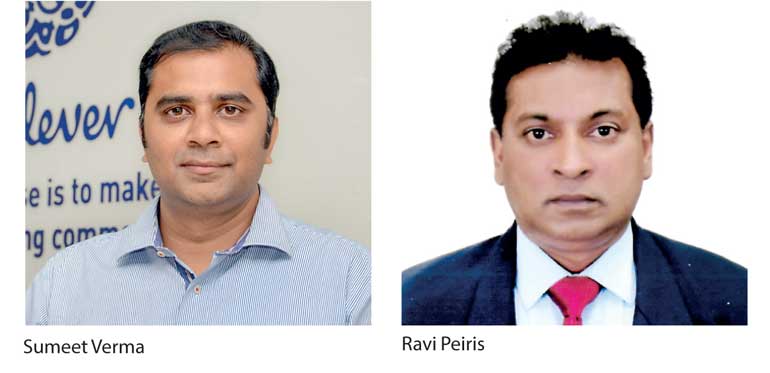Wednesday Feb 18, 2026
Wednesday Feb 18, 2026
Friday, 27 October 2017 00:00 - - {{hitsCtrl.values.hits}}
 A by-product of globalisation, supply chains have undergone notable transitions, fuelled by improvements in logistics, infrastructure and technological innovations. Trade agreements too have played a role in facilitating and reducing the costs of trade, through tariff reduction, harmonisation of institutional frameworks and liberalisation of services. With increased international outsourcing and offshoring, emerging economies have become notable players in the field of international trade.
A by-product of globalisation, supply chains have undergone notable transitions, fuelled by improvements in logistics, infrastructure and technological innovations. Trade agreements too have played a role in facilitating and reducing the costs of trade, through tariff reduction, harmonisation of institutional frameworks and liberalisation of services. With increased international outsourcing and offshoring, emerging economies have become notable players in the field of international trade.
While generating employment opportunities across countries beyond the original source, GSCs are increasingly building global level of skills and capability across the world, the long-term benefits of which are enormous, notes Unilever Sri Lanka Ltd. Director, Human Resources and Corporate Relations Sumee Verma, who will be moderating the session on ‘Global Supply Chains’ at annual symposium of the Employers’ Federation of Ceylon (EFC) which will unfold on 8 November at the Cinnamon Grand. This year’s EFC-Symposium is aligned on the theme of ‘Sustainable Enterprises- Creating value’.
The major shifts in GSCs are also notable, points out the senior professional. “There is focus on asset optimisation, how to convert big data into actionable data, how to leverage digitisation, technology, etc.” Correct use of these levers will help emerging economies to be more robust and competitive in international trade and build skills and capabilities for employment in the long term, he asserts. Moreover, they play a significant role in the SME sector in terms of knowledge and best practice sharing, investing in technology, research and development and mentoring to inculcate sustainable business practices.
The impact of effective governance within an organisation on GSCs cannot be underpinned. “GSCs tend to have a wider view of political, social and environmental context across countries and can contribute to business goals by strategising and defining KPIs that enable business results with positive environmental and social impact drawing on synergies where possible,” maintains Verma.
“Around 70% of the global trade activities take place within the global supply chains accounting for 453 million jobs, which demonstrates the extensive coverage of GSCs,” observes Ravi Peiris, Senior Specialist, Employers’ Activities, ILO-DWT for South Asia. Peiris will be among the eminent panellists deliberating on ‘Global Supply Chains’ at EFC symposium.
Global supply chains also contribute significantly to productive employment, social development and decent work, asserts the Employers’ Activities Specialist who cites new opportunities in GSCs which have opened in the IT enabled sectors such as BPOs and KPOs where Sri Lanka could play a decisive role as a popular destination for knowledge services across the globe which significantly contributes to the local economy.
Citing the importance of improving working conditions and productivity within SMEs of the GSCs, the ACTEMP as Peiris asserts, has responded with the effective tool of SCORE (The Sustaining Competitive and Responsible Enterprises). It offers practical training and in-factory expertise for SMEs to be valued partners in GSCs. “Today, more and more enterprises look upon covering decent work deficits, if any, as a means to improve workplace productivity and efficiency and do not perceive it as something that has been ‘thrust’ upon them forcibly by the regulatory framework.”
EFC Director General Kanishka Weerasinghe asserts, as the National Employer Organisation, it is incumbent upon the EFC to ensure that an enabling environment is created in order for business to thrive. “We are mindful that this has to be done in a sustainable manner taking cognisance of the interests of other stakeholders including civil society. Ensuring the resilience of business is part of this process. It is timely that we propagate the values of sustainable enterprises island-wide as the regions form an important part of the growing number of supply chains.”
Aside from the portfolio of services that the EFC provides, based on employer requirements, it has also developed an important tool in ‘Compliance+’ based on four ‘core’ pillars related to the ‘world of work’ supported by the International Organisation of Employers (IOE) and with technical assistance of the ILO. “We also hope to launch the Network of Sustainable and Resilient Enterprises (SREN) to complement these initiatives soon,” notes the EFC Chief.